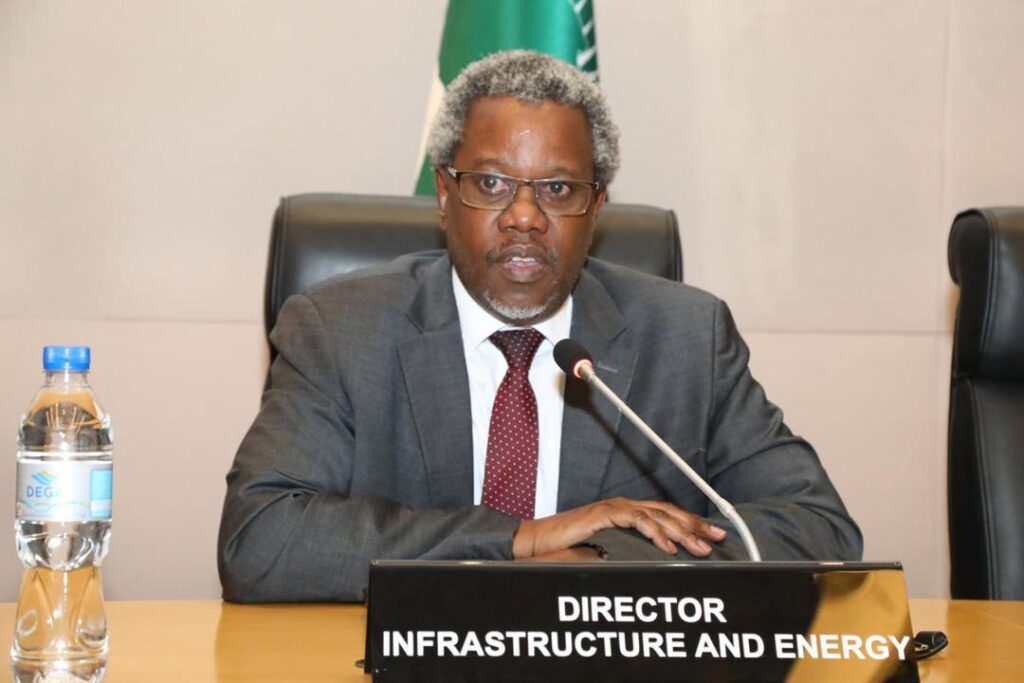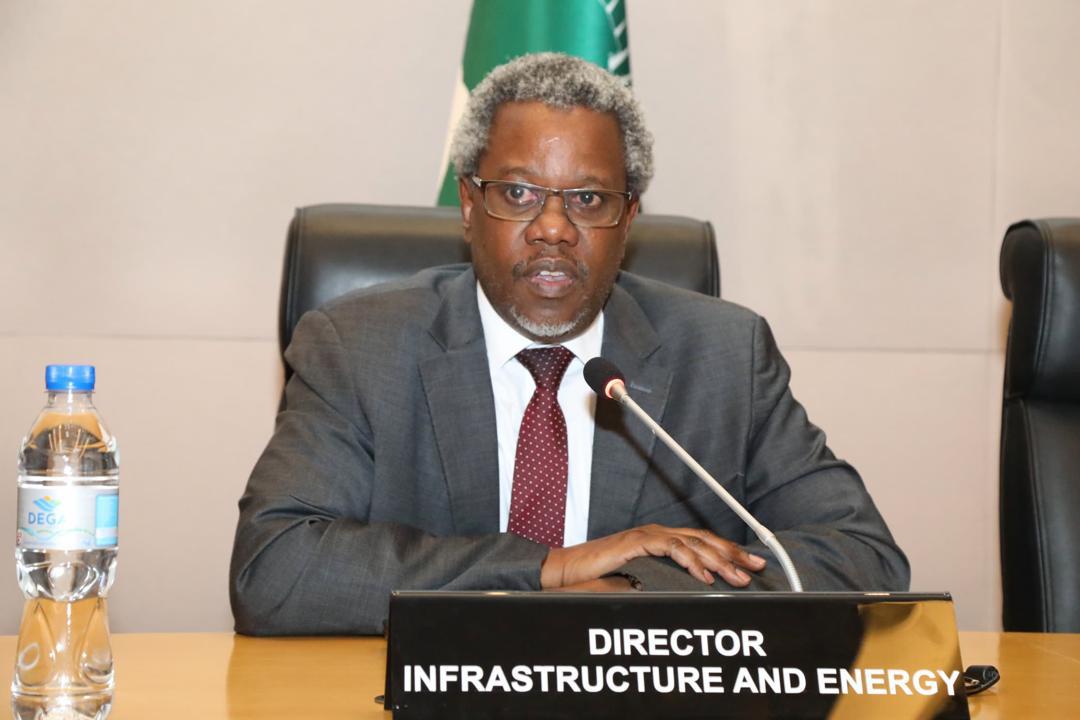By Baboloki Semele
Addis Ababa, Ethiopia, 04 September 2024: Electricity and power stakeholders gathered today in Addis Ababa, Ethiopia for a three day consultation and validation workshop for the African Single African Single Electricity Market (AfSEM), the Continental Master Plan (CMP), and the African Electricity Efficiency Strategy (AfEES). Held with the support of the African Union, the workshop has brought together key players from governments, the private sector, regional economic communities, financial institutions, and civil society to deliberate on the continent’s energy future.
Addressing the gathering, the director of Infrastructure and energy at the African Union Commission Dr. Kamugisha Kazaura emphasized the critical juncture at which Africa stands in its energy journey. He noted that with the continent’s population projected to swell to 2.5 billion by 2050, the demand for reliable, affordable, and sustainable electricity is more urgent than ever. Currently, nearly 600 million people in sub-Saharan Africa live without access to electricity—a stark reality that the AfSEM, CMP, and AfEES initiatives aim to change.
AfSEM, heralded as a flagship initiative of the African Union, seeks to integrate the electricity markets of over 55 countries into a single, pan-African market by 2040. This ambitious project is poised to become the world’s largest electricity market, promising to extend electricity access to millions who currently live without it. Dr.Kazaura, says beyond infrastructure expansion, AfSEM is viewed as a catalyst for economic integration, driving down energy costs, and embedding renewable energy at the core of Africa’s energy mix.
The CMP, described as a strategic roadmap, is set to guide the continent’s energy infrastructure development. By ensuring that investments align with long-term goals, reducing redundancies, and optimizing resources across regions, the CMP also aims to ensure that no African nation is left behind in the pursuit of energy security.
Complementing these efforts, the African Electricity Efficiency Strategy (AfEES) focuses on sustainability through stringent energy efficiency standards. The initiative is expected to reduce waste, lower costs, and minimize environmental impact, particularly in energy-intensive sectors such as agriculture, transport, and industry. By fostering innovation and adopting advanced technologies, AfEES seeks to create energy systems that are both powerful and efficient.
During the official opening of the workshop, Director Kazaura, also underscored the importance of collaboration among all stakeholders. He noted that the success of these initiatives hinges on the collective action of governments, private sector entities, regional bodies, and international partners.
“Over the next three days, we will engage in discussions that will shape the future of energy in Africa. We will identify challenges, explore opportunities, and, most importantly, build consensus on the way forward as we are embarking on the implementation stage. Our discussions will be informed by the latest data, insights, and best practices from around the world, but our solutions will be uniquely African, tailored to the needs and aspirations of our people.” said Dr. Kamugisha Kazaura,
The workshop serves as a platform to align visions, share expertise, and build consensus on the way forward.
The director expressed gratitude to the European Union for its strategic, technical, and financial support in formulating these AU initiatives. Appreciation was also extended to development partners like the African Development Bank, BMZ, GIZ, and technical partners such as IRENA and the International Atomic Energy Agency (IAEA), who were informed that their expertise and insights are seen as invaluable in laying the foundations for a transformative energy future for Africa.

